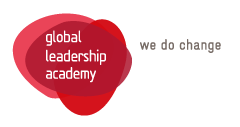Difficult but honest: Social cohesion after Brexit
Joy Warmington is founder and CEO of brap, an equalities and human rights charity in Birmingham, United Kingdom. She took part in the Power of Diversity Lab.
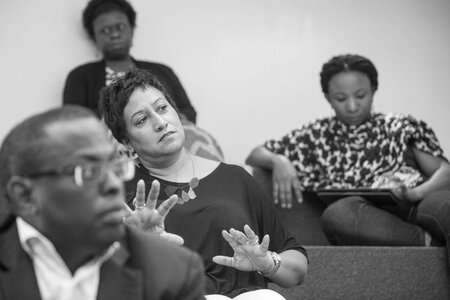
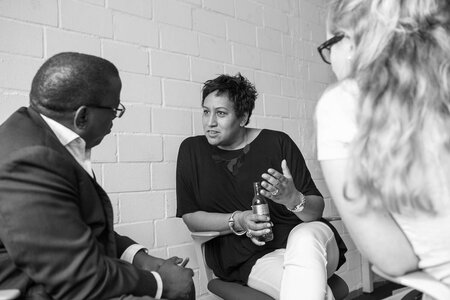
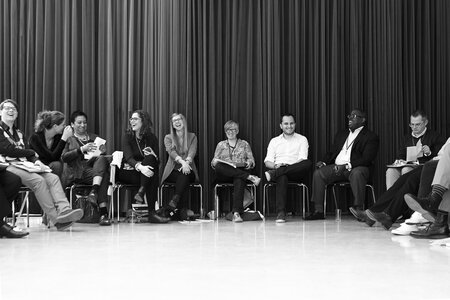
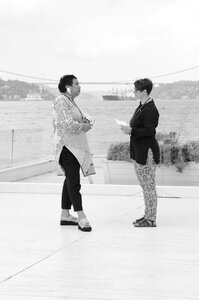
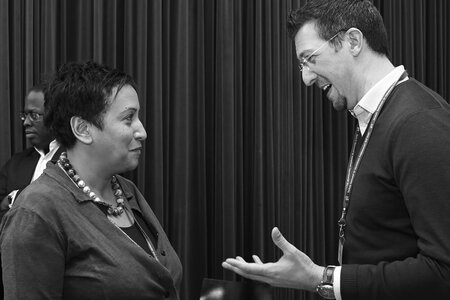
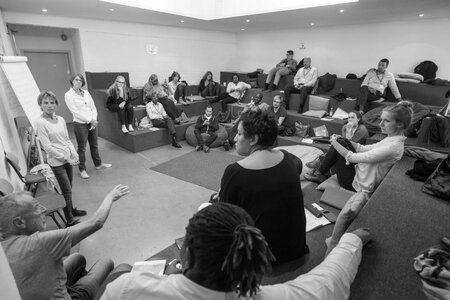
At the point of joining the Lab, what were the challenges and political context you were grappling with at work? What was the most pressing question you were looking to answer in the Lab?
As an anti-discrimination organisation advocating for equality and diversity, we recognised long ago that many people seem to hold back what they really think about these issues. As an example, after events or discussions, people would come and tell us “You know, what I really think is xyz but I couldn’t say that in the group”. Conversations about these topics are extremely difficult because people wonder “How do I say this? How can I as x say y? How will it be received?”; as a consequence, they are not completely open and honest. So we know there is something we’re not addressing and that people have learnt to tread carefully with equality and diversity. So much so that communities and societies have become stuck.
What happened at the Lab that you had not expected?
Even though I was very open to participating in the Lab and its experiences, I hadn’t anticipated seeing the beauty of the method and was struck by how it worked. We learned how to use group process as a method to facilitate deeper conversations, especially on uncomfortable issues. The approach is very much participant led, which means departing from approaches that have pre-defined outcomes or set objectives. This was quite thought-provoking and made me re-think our own approach to change.
Was there anything you did or approached differently after the Lab experience?
Much of the anti-discrimination effort has revolved around legislation: telling people what not do or what not to say. Of course, behind this is the belief that people will change if they understand the rules. But these formal approaches are too simplistic and fail to deliver. Today, interaction is much more complex - and distinguishing right from wrong has become more debatable. So the Lab made me reflect on our approach to change and I recognised the limitations of some of our existing approaches, especially the training and development activities. I’ve also come to understand the importance of being non-judgmental to promote social progress. The Lab really has been the most significant learning experience I have had in a number of years.
How is your work today and how do you see it evolving in the future? Were any new projects born on the back of your experiences at the Lab?
Birmingham, our base, is one of the cities where the majority voted in favour of leaving the EU. We know this doesn’t mean that all those who voted leave are racist - far from it. But we recognise the challenge of being a migrant working and living in a place where your future is uncertain, and possibly where many in the host community make you feel unwelcome. Not surprisingly, we’ve also seen a rise in hate crime. The Leave campaign was quite openly racist and painted a very negative picture of immigration. This has possibly legitimised the belief of some that it is ok to discriminate. Many feel that our communities have been torn apart.
As an organisation, we wondered how communities could engage in a constructive way with what people are feeling and thinking right now. So we set up three projects, in different parts of the city, which will use group process as well as other methods to understand more about hate and distrust among communities and also to explore what community cohesion means on the ground. The first meetings have already taken place. One of them was an open community event called “Too scared to ask?” which was explicitly advertised as a forum to explore all opinions and perspectives rather than rebut the same old statements. It was a great event! One of the participants said afterwards “I thoroughly enjoyed it, compared to other talks and events I have attended recently it really stood out”. The hosts were quite skeptical originally but very pleased after the event and invited us to organise two more. We are intending to continue with this work and to host a conference on the outcomes later this year.
Impressions from brap's community event "Too scared to ask?" in Birmingham
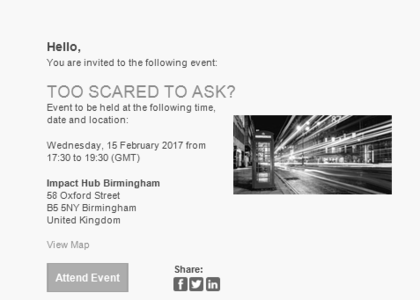
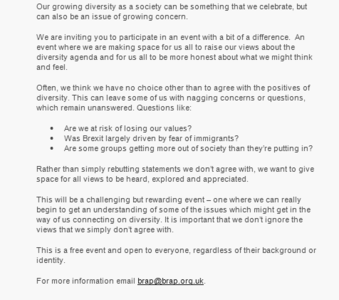
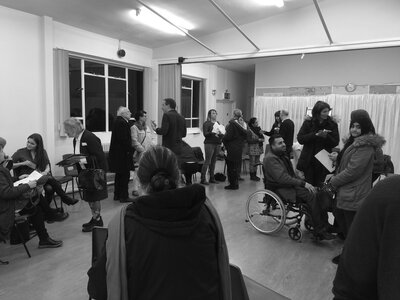
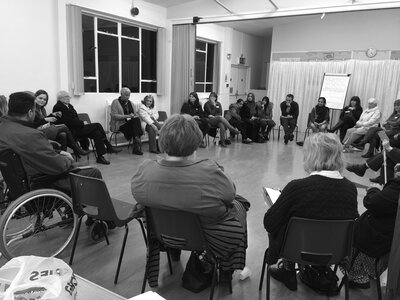
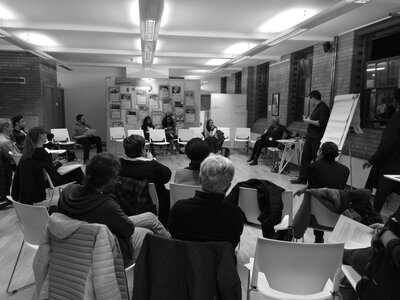
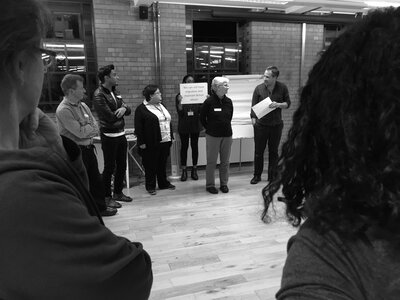
Contributing to the global goals


